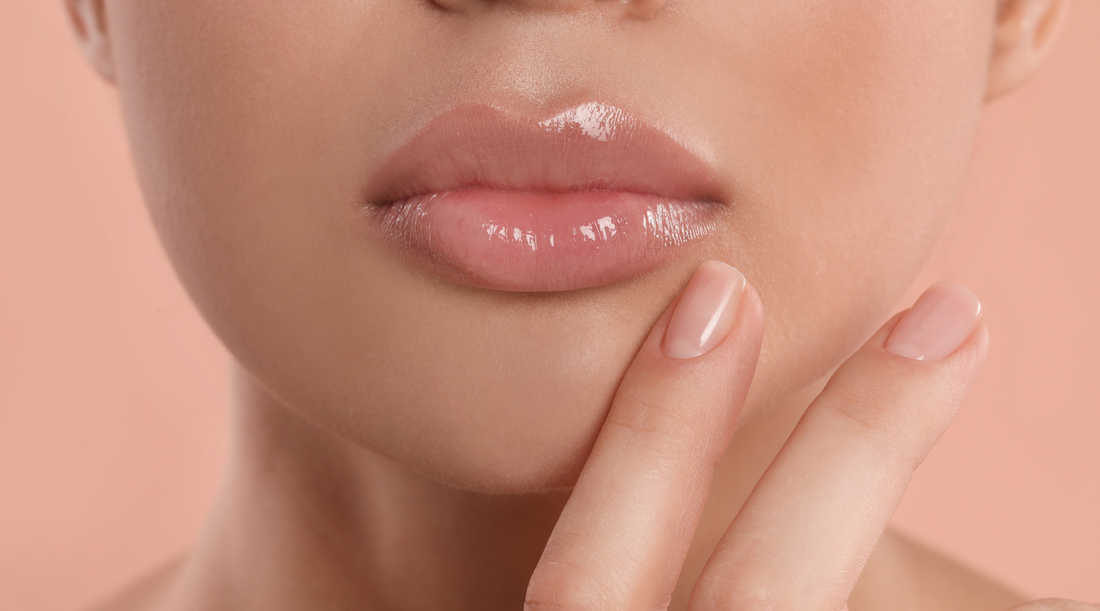You probably know how important collagen is to smooth, glowing skin. It’s like the glue that holds our skin together. An ample supply helps your skin maintain its plumpness, and fighting off unsightly wrinkles is just one of the benefits of collagen.
As we age, the body gradually makes less collagen, which can make our skin look saggy, dull, and rough. So…it makes sense to seek out other ways to help boost collagen production.
Other than turning straight to advance technology, there are plenty of natural and sustainable ways to support your body’s collagen levels. Even if you’ve already started with collagen-filled supplements, these tips are worth helping your body increase natural collagen production to complement the tools in your daily wellness and beauty routine.
#1 Protect your Skin from Irritants and Damage
It’s widely known that excess sun exposure is the biggest cause of damage to your skin, causing fine and coarse wrinkles, baggy skin with a yellow, leathery appearance, and dry, scaly skin. But the sun isn’t the one and only culprit when it comes to daily skin damage. Harsh weather, pollution, excess dust, and even blue light from electronic devices can all contribute, depleting your body’s collagen over time.
While there’s no point overreacting to every sunburn or snowstorm, some simple tips to protect your skin.
For enthusiasts of outdoor activities, always remember your sun protection. Careful selection and application of a sunscreen can go a long way toward preventing further skin damage. It is also important to wear protective clothing, such as a hat, long sleeves and long legs, when you’re out in the sun.
Regardless of the weather, clean your skin daily to get rid of the unavoidable irritants, and choose a skin cleanser that suits your skin. Avoid overly hot showers or harsh cleansers that strip protective oil away; you don’t want to leave your skin vulnerable after you’ve cleaned it. Lastly, always remember to moisturize your skin after the shower!
Note: Collagen in cream? Collagen can struggle to reach deep layers of your skin if applied in a cream or lotion. Your topical treatments should focus on protecting the collagen that’s already there.
#2 Include Collagen-Friendly Foods to your Diet
While planning your daily meals, include some collagen-friendly and collagen-boosting foods that help replenish your skin from the inside out.
Food containing collagen:
- Foods, specifically tough cuts of meat full of connective tissue like pot roast, brisket, and check steak, are rich in collagen. However, a high intake of red meat is not recommended as part of a long-term healthy diet. Collagen is also found in the bones and skin of fresh and saltwater fish.
- Bone broth is also promoted as a health food rich in collagen. The process involves simmering animal bones in water with a tiny amount of vinegar (to help dissolve the bone and release collagen and minerals) anywhere from 4 to 24 hours. The amount of amino acids vary among batches depending on the types of bones used, how long they are cooked, and the amount of processing (e.g., if it is packaged/canned version).
- Gelatin is a form of collagen made by boiling animal bones, cartilage, and skin for several hours and then allowing the liquid to cool and set. The breakdown of these connective tissues produces gelatin.
Foods to boost collagen production:
- Several high-protein foods are believed to boost collagen production because they contain the amino acids, such as glycine, proline, and hydroxyproline, that make collagen. Look for foods like fish, poultry, meat, eggs, dairy, legumes, and soy.
- Collagen production also requires nutrients such as zinc that is found in shellfish, legumes, meat, nuts, seeds, and whole grains; and vitamin C from citrus fruits, berries, leafy greens, bell peppers, and tomatoes.
Collagen boosting food helps provide bioavailable forms of collagen, and the nutrients your body needs to produce more collagen — much like Béyond Glow, which help stimulate collagen precursors production through a proprietary blend containing superoxide dismutase (SOD), grape flavanols, vitamin C and zinc.**
#3 The Foods to Avoid
No diet is perfect, but try minimizing sources of:
Processed sugar and refined carbohydrates —- both of which can cause inflammation and damage existing collagen, as well as your body’s ability to produce more collagen. Instead, go for naturally sweet treats, such as berries, that can take a load off your skin.
Fatty or processed meats —- another major culprit of inflammation. Meats that have been cured or processed; for example, hot dogs, sausage, bacon, and ham slices, tend to be higher in sodium, saturated fats and sulfites, which can contribute to dehydration and inflammation in the body and hinder collagen production. Instead, go for collagen-friendly proteins like eggs, beans, fish and lean meat!
#4 Selective supplementation
If you’re looking for natural options beyond a balanced diet, look for supplements that help protect your skin and naturally increase collagen production.
For example, vitamin C is essential for the production of collagen. The human body cannot make vitamin C, so we need to get it from the diet or supplements. An extract of aloe vera gel called Aloe sterols, taken orally, can boost hyaluronic acid and collagen production in the body.
Béyond Glow botanical powder beverage mix takes a similar approach. By increasing the skin’s natural antioxidant defenses, they go right to the source of your collagen to help replenish, regenerate, and protect existing collagen from degradation caused by habits or your environment.

